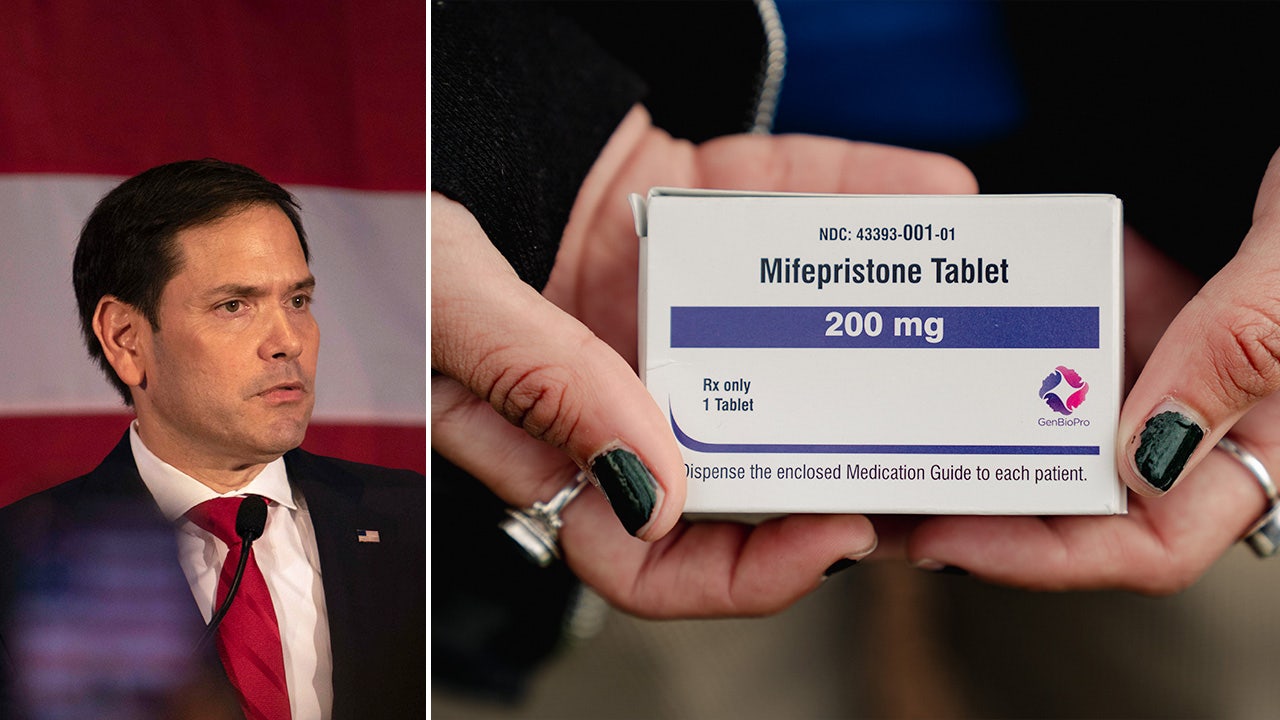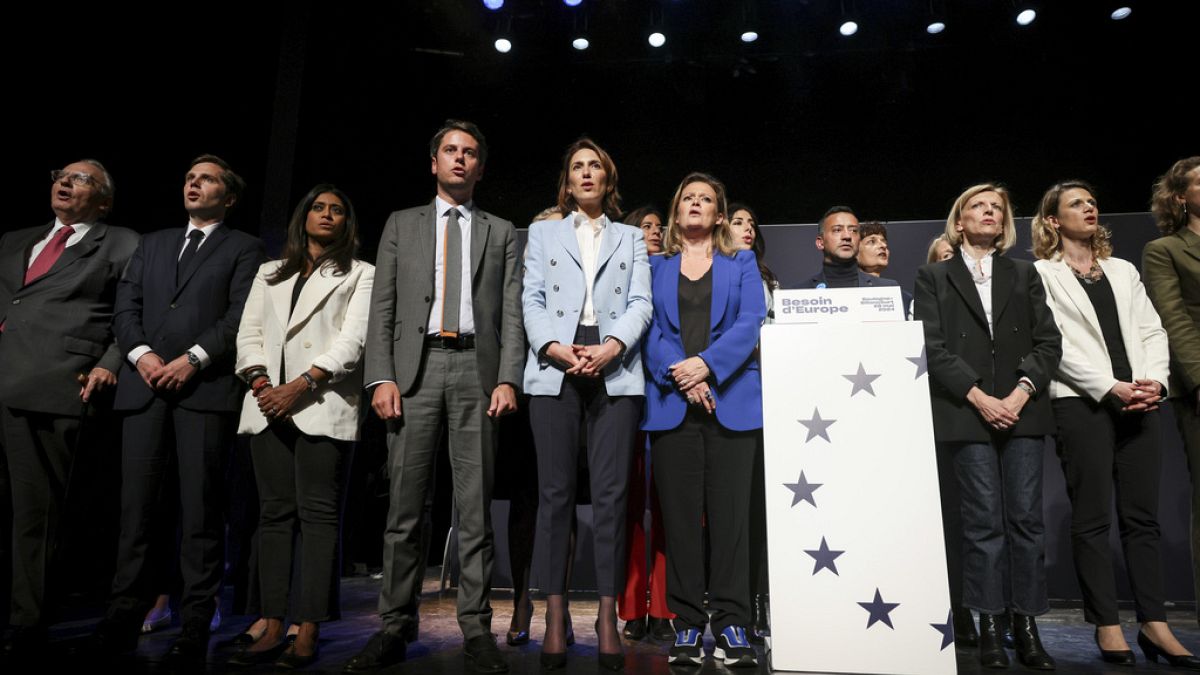South Dakota
Lincoln County residents pressure commission to act on pipeline ordinance

CANTON, S.D. — It’s been two weeks since the Lincoln County Planning Commission advanced an ordinance regulating pipelines, and residents of the county are calling on the county’s Board of Commission to address the ordinance quickly.
The Lincoln County Planning Commission on June 20 advanced a carbon pipeline ordinance that mainly established setbacks for new transmission lines in the county. Though slightly altered from the citizen-initiated amendment’s original text, the body voted 3-2 in favor of the following setbacks:
- 2,000 feet from dwellings, churches, businesses and eligible sites;
- A half-mile from public parks, schools and health care facilities;
- A half-mile from municipalities of 500 or fewer population;
- Three-quarters of a mile from municipalities between 500 and 5,000 population;
- One mile from municipalities of 5,000 or more population.
The June 20 passage from the planning board came with hesitation from the body’s legal counsel, Bill Golden, as well as Lincoln County Planning and Zoning Director Toby Brown, as both feel that some ambiguity in the ordinance amendment could leave the county exploring legal questions.
“I think legal counsel still would have concerns about overall legal concerns they might have,” Brown told the board ahead of the vote.
Screenshot / Lincoln County via YouTube
One legal quandary Brown expressed focused on a grandfather clause. As written, Brown said the amendment would place existing transmission lines, such as overhead power lines, in non-compliance with county code. A grandfather clause would have to be carefully crafted, he said, so as to not include controversial carbon pipelines.
The planning commission advanced the ordinance anyway without a grandfather clause in place.
The Lincoln County Commission could have taken up the issue at their most recent meeting on June 27, but didn’t. That led to some citizens calling on the commission to act quicker.
“Are there any commissioners that have not seen the ordinance that’s been submitted?”
“I can’t expect so because it has been in previous meetings also,” said Ernest Stratmeyer, of Worthing. “Planning and zoning has revised and passed the ordinance a second time. We need you as commissioners to help the Lincoln County citizens by voting on this ordinance and getting it in place. This is the job of the commission.”
Stratmeyer said that other counties have put in place moratoriums to buy themselves extra time to establish their rules, and added that the county should make the right move by passing it.

Screenshot / Lincoln County via YouTube
“On this ordinance, a ‘yes’ vote would indicate that you, the commissioners, are working for the citizens. A ‘no’ vote would indicate your work is for something else,” he said. “Do what’s right and pass the ordinance.”
Sioux Falls resident Gary Schuster said pipelines near homes or businesses will increase hazards to residents of the county, specifically those that are closest to it. He asked that the ordinance be placed on the next agenda to help the citizens.
“It very much affects the people of Lincoln County,” Schuster said. “Please take the opportunity to put that ordinance on the agenda.”
Fairview resident Linda Montgomery, who is adamantly against the carbon pipelines, also called on the commission to place the ordinance on the agenda so that citizens can once again give their input.
“I have to always state that I do not agree with the pipeline. This could’ve been stopped and still should be stopped in Lincoln County. We don’t need it, we don’t want it,” Montgomery said. “I would like to have you be able to put out very soon when you’re putting it on the schedule. … I would like to get to the point to have citizens talk about this issue.”
The added pressure from residents comes as lawmakers are calling on Gov. Kristi Noem to use a special legislative session to address surveying issues after armed security guards accompanied pipeline companies on private land to begin surveying in northern South Dakota.
.@govkristinoem let’s call a special session. Landowner’s rights are being seized by a Chinese connected corporation in the name of “eminent domain,” and I’ll stay as long as it takes to convince Senate leadership to stand for our South Dakota landowners’ Constitutional rights. https://t.co/y9S7G0gauW
— Rep. Jon Hansen (@RepJonHansen) June 26, 2023
A stream of landowners have also
called on regulators to issue a federal moratorium
on carbon pipelines during a two-day meeting in Des Moines.
Though residents of Lincoln County are asking the commission to place the pipeline ordinance on the agenda, it’s unclear when exactly the body will take up the issue. With the Independence Day holiday interrupting the commission’s usual first-Tuesday-of-the-month meeting, the issue will not be discussed until, at the earliest, its next meeting on July 11.
The Lincoln County Commission meets on the first, second and fourth Tuesdays of the month at the county’s courthouse in Canton. If the question is not addressed on July 11, it will remain unanswered until at least July 25.
A South Dakota native, Hunter joined Forum Communications as a reporter for the Mitchell (S.D.) Republic in June 2021 and now works as a digital reporter for Sioux Falls Live, with a primary focus on crime and Sioux Falls and government in Lincoln County.

South Dakota
“The Merchant of Venice” to be performed at the South Dakota Shakespeare Festival

VERMILLION, SD (KTIV) – Grab your lawn chair to enjoy a night of tragedy, comedy and Shakespeare.
The South Dakota Shakespeare Festival will put on “The Merchant of Venice” at Prentis Park, in Vermillion, South Dakota. Performances start at 7 p.m. Thursday, June 6 and will run until Sunday, June 9.
The South Dakota Shakespeare Festival is bringing this story to life with the North Dakota Shakespeare Festival.
Beer, wine and other refreshments will be available for sale at showtime. The festival says “The Merchant of Venice” marks one of Shakespeare’s most intricate tales of comedy and tragedy to create a world where not everything is as it seems.
Before opening night, SDSF says they would like to warn the public that the play does contain theatrical elements of bigotry and antisemitism.
“Please be aware that this play includes theatricalizations of bigotry and antisemitism with the purpose of generating productive and restorative dialogue surrounding these challenging issues.” said the South Dakota Shakespeare Festival, “SDSF and NDSF are committed to creating places and opportunities for us to process how art and life collide.”
For audience members who wish to participate in these conversations, SDSF will hold “Community Building Conversations.” The event will include a talkback about the history of the production and the time period while focusing on how it relates to the 21st century.
The discussion will be from 1 p.m. to 2:30 p.m. at the W. H Over Museum on Monday, June 3. SDSF says they will also hold a post-show exchange with the production’s creative team on Friday, June 7 and Sunday, June 9th.
Besides the production and conversation, SDSF will have other events take place from June 2 through June 9th.
For more information, visit www.sdshakespearefestival.org or follow the festival’s Facebook page.
Copyright 2024 KTIV. All rights reserved.
South Dakota
Former South Dakota mayor arrested over triple murder shooting

A former South Dakota mayor has been arrested and charged with three counts of murder over a triple slaying in the area that he used to represent.
Jay Ostrem, 64, was arrested following the deaths of three victims on Monday night. He was detained by the Turner County Sheriff’s Office, where he had also reportedly once served as a detective.
The incident was reported at around 10pm on 27 May at a residence in the city of Centerville.
“Jay Ostrem has been arrested and charged with three counts of First Degree Murder, and law enforcement has secured the scene,” said Attorney General Marty Jackley. “There is no further threat to the public.”
Mr Ostrem worked in law enforcement for more than two decades in Wyoming and South Dakota, media reports said. He served as mayor of Centerville about a decade-and-a-half ago, but the exact dates weren’t immediately available.
The names of the three victims, aged 21, 26 and 35, have not yet been released by police pending notification of next of kin. It is understood that two of the men were brothers.

According to the state attorney general’s office, Mr Ostrem is being held on a $1m cash only bond in the Minnehaha County Jail, following the incident.
Authorities did not list a motive for the crime. However, in a complaint filed on Tuesday, obtained by the South Dakota Searchlight, Mr Ostrem justified his actions by claiming it was in retaliation to a sexual assault on his wife.
One of the three men killed was the alleged perpetrator of the sexual assault, the complaint stated. Another was a relative of that man, who called police to report the shooting before being shot himself.
A man had called 911 to report that his brother had been shot by “a guy from across the street,” and that the gunman had returned home.
Police said the man remained on the phone with a dispatcher when a gunshot rang out and then yelled that he was shot. After that, police said, he went silent.
“After some time on the phone with the dispatcher, the male calling party then reported he had been shot,” the affidavit said, reported by Sioux Falls Live. “Shortly after he reported he had been shot, the male stopped communicating with the dispatcher.”
A third man was also found dead in the home, though his relationship with the brothers was not specified.
The affidavit stated that Mr Ostrem’s wife told police that the fatal events came after her disclosure to him that one of the victims had sexually assaulted her at their home on Thursday evening as he slept.
The man lived across the street from the Ostrems.
Per The Searchlight, upon learning of the incident Mr Ostrem “got up and went raging out of the house.” His wife stayed inside until police arrived, which happened shortly after Mr Ostrem was found walking near his home with an “AR-style rifle” and a .380 pistol.
A South Dakota Game, Fish and Parks conservation officer was the first to encounter Mr Ostrem after the shooting, the affidavit said, who noticed “an odor of consumed alcohol”.
He complied with the officer’s commands to stop walking, and he told the officer he had a pistol in his pocket.
The date for Mr Ostrem’s initial appearance on the Turner County charges has yet to be set.
South Dakota
The jury now will decide Trump’s fate in hush money trial, after lengthy closing arguments • South Dakota Searchlight

WASHINGTON — Closing arguments in the first-ever criminal trial of a former U.S. president concluded Tuesday, leaving the jury to now decide if Donald Trump is guilty of faking reimbursement to his personal lawyer for hush money paid to a porn star just before the 2016 presidential election.
Just outside the Lower Manhattan courthouse during summations, the campaign to reelect President Joe Biden held a press conference featuring actor Robert DeNiro and two former U.S. Capitol Police officers who were overwhelmed by the angry mob of Trump supporters who stormed the building on Jan. 6, 2021.
DeNiro bickered with a heckler and the Trump campaign then followed with its own press conference.
The trial’s final day of arguments wrapped up after nearly eight hours of closing arguments, during which the defense portrayed Trump’s former lawyer Michael Cohen as the “M.V.P. of liars” and Trump as a victim of extortion and too busy a leader in 2017 to understand the payments to Cohen.
Meanwhile, the prosecution walked jurors through excruciating details of events and witness testimony to show that Trump’s objective, along with those in his orbit, was to “hoodwink the American voter” leading up to the 2016 election, according to reporters at the courthouse.
New York does not allow recording in the courtroom but provides public transcripts of the proceedings. States Newsroom covered the trial in person on May 20.
Trump, the presumed 2024 Republican presidential nominee, is charged with 34 felonies, one for each of the 11 invoices, 11 checks, and 12 ledger entries that New York state prosecutors allege were cooked-up as routine “legal expenses,” hiding what were really reimbursements to Cohen for paying off adult film actress Stormy Daniels.
Trump denies any wrongdoing
Daniels, also an adult film director, testified in early May to a 2006 sexual encounter at a Lake Tahoe golf tournament with Trump, which he maintains never happened.
Cohen, the prosecution’s key witness, later told the jurors that he wired Daniels $130,000 to secure her signature on a nondisclosure agreement in late October 2016, and that Trump was aware.
Trump declines witness stand as testimony in his first trial concludes
Cohen’s payment swiftly followed the release of the “Access Hollywood” tape, in which Trump was recorded telling a TV host that his fame allows him to grab women by the genitals.
The revelation spun Trump’s campaign into a frenzy over possibly losing women voters, additional witnesses testified.
Further, Cohen testified that Trump was present during conversations to hatch a plan with the Trump Organization’s longtime chief financial officer, Allen Weisselberg, to repay Cohen under the guise of “legal expenses.” Cohen would eventually receive a grossed-up sum of $420,000 to account for a bonus and taxes.
The hush money trial, which began in mid-April, is likely the only one to occur prior to the November election. Three other criminal cases against the former president, two federal and one in Georgia, remain stalled.
Throughout the six-week trial, jurors heard from nearly two dozen witnesses called by the prosecution to establish Trump’s history of working to suppress negative stories.
David Pecker, former National Enquirer publisher, testified to coordinating with Trump and Cohen earlier in 2016 to pay off former Playboy model Karen McDougal and bury her story of an alleged affair with Trump.
The G.L.O.A.T.
In his closing statements, Trump attorney Todd Blanche addressed the jury for nearly three hours, arguing that Trump made no such effort to influence the 2016 election by “unlawful means.”
Blanche told the jurors to put the idea of a conspiracy aside, emphasizing that the existence of a nondisclosure agreement is “not a crime.” Working with editors to buy sources’ silence and bury stories was routine, Blanche said.
“Every campaign in this country is a conspiracy,” he told the jurors, according to reporters at the courthouse.
While no hard contract existed between Trump and Cohen at the time, Blanche argued that the two had entered into an “oral” retainer agreement, and that Cohen was lying about how much work he was actually doing for Trump.
By the time Trump reached the Oval Office and personally signed nine of the 11 checks for Cohen, the then-president was too busy “running the country” to realize what he was signing, Blanche said.
As for the classification of the payments on the ledger, Blanche argued that the Trump Organization’s software featured limited dropdown menu categories, and that “legal expenses” was one of the options.
Blanche’s closing statements were largely dominated by his effort to persuade jurors that Cohen’s testimony could not be trusted.
“There is no way that you can find that President Trump knew about this payment at the time it was made without believing the words of Michael Cohen — period,” Blanche told the jurors, according to reporters in the courtroom.
Cohen pleaded guilty in 2018 for lying to Congress.
Using another sports metaphor, Blanche told jurors that Cohen is the “G.L.O.A.T.”
“He’s literally the greatest liar of all time,” Blanche said.
He closed by urging the jurors to not send Trump “to prison” based on Cohen’s testimony.
Justice Juan Merchan admonished Blanche for mentioning prison, pointing out that a guilty verdict does not necessarily mean prison time. Merchan told the jurors to disregard that “improper” comment, according to reporters at the courthouse.
‘The only one who’s paid the price’
For just under five hours, prosecutor Joshua Steinglass led jurors through his closing argument, clocking the longest day of the trial.
Steinglass started off by telling them the prosecution only needs to prove the following: There were false business records used as part of the conspiracy and that Trump knew about them.
Steinglass reviewed earlier evidence presented to the jury — phone records, handwritten notes, recorded phone conversations and checks bearing Trump’s own signature. He also recalled the damning testimony of several Trump allies, including Pecker, the publisher.
“The conspiracy to unlawfully influence the 2016 election — you don’t need Michael Cohen to prove that one bit,” Steinglass said, according to reporters at the courthouse.
Steinglass leaned into Cohen’s seedy past, including his lying to Congress and his jail time for campaign finance violations related to hush money payments to women who alleged extramarital affairs with Trump.
These actions, he said, were taken on Trump’s behalf to defend and shield him; the irony, Steinglass said, is now they are being used against Cohen, again, to protect Trump.
Cohen transformed from a loyal Trump ally into a bitter foe who has published books titled “Disloyal” and “Revenge,” and produces a podcast called “Mea Culpa” on which he regularly lambastes Trump.
Cohen is “understandably angry that to date, he’s the only one who’s paid the price for his role in this conspiracy,” Blanche told the jurors, according to reporters, who noted Trump was shaking his head.
Steinglass attempted to humanize Cohen for the jurors, telling them one can “hardly blame” the former fixer — who now has a criminal record and no law license — for selling merchandise including t-shirts depicting Trump in an orange prison jumpsuit.
Steinglass also refuted the defense’s argument that Trump’s actions ahead of the 2016 were routine, describing the National Enquirer as “a covert arm” of the Trump campaign and “the very antithesis of a normal legitimate press function.”
“Everything Mr. Trump and his cohorts did in this case was cloaked in lies,” Steinglass said nearing the end of his closing statement. “The name of the game was concealment, and all roads lead to the man who benefited the most, Donald Trump.”
Biden deploys DeNiro
On the sidewalk just outside the New York County Supreme Court, the Biden campaign deployed DeNiro, the voice of the latest campaign ad, and former U.S. Capitol Police officers Harry Dunn and Michael Fanone. The officers are campaigning for Biden in battleground states, the campaign said in a press release.
The campaign’s Michael Tyler, communications director, introduced the trio and said they were not in Manhattan because of the trial proceedings, but rather because that’s where the media is concentrated.
Prosecution rests in Trump hush money trial, after former fixer Cohen is grilled
Loud protesters, whom DeNiro called “crazy,” competed with the speakers.
“Donald Trump has created this,” DeNiro said, pointing to the demonstrators. “He wants to sow total chaos, which he’s succeeding in some areas … I love this city, and I don’t want to destroy it. Donald Trump wants to destroy, not only this city, but the country, and eventually he could destroy the world.”
“These guys are the true heroes,” De Niro said, pointing to Dunn and Fanone behind him. “They stood and put their lives on the line for these low lives, for Trump.”
A protester then interrupted DeNiro to call the officers “traitors.”
“I don’t even know how to deal with you, my friend,” DeNiro snapped back during the livestreamed event.
Both Dunn and Fanone testified two years ago before lawmakers investigating the violent mob that overran the U.S. Capitol on Jan. 6 as Congress gathered for a joint session to certify Biden’s 2020 presidential election victory. Trump still falsely claims he won the election.
Trump’s campaign immediately followed with its own press conference.
Jason Miller, senior adviser to Trump, held up Tuesday’s copy of the New York Post bearing the headline “Nothing to Bragg About,” a play on Manhattan District Attorney Alvin Bragg’s name.
“Everybody knows this case is complete garbage,” Miller said. “President Trump did nothing wrong. This is all politics.”
On Trump’s social media platform Truth Social, the former president posted “BORING!” in all capital letters during a break in the Steinglass summation.
Late Monday, Trump posted in all caps a complaint about the order in which closing arguments would occur — a routine, well-established series of remarks in trials.
“WHY IS THE CORRUPT GOVERNMENT ALLOWED TO MAKE THE FINAL ARGUMENT IN THE CASE AGAINST ME? WHY CAN’T THE DEFENSE GO LAST? BIG ADVANTAGE, VERY UNFAIR. WITCH HUNT!” he wrote.
GET THE MORNING HEADLINES DELIVERED TO YOUR INBOX
-

 Movie Reviews1 week ago
Movie Reviews1 week ago‘The Substance’ Review: An Excellent Demi Moore Helps Sustain Coralie Fargeat’s Stylish but Redundant Body Horror
-

 Culture1 week ago
Culture1 week agoFrom Dairy Daddies to Trash Pandas: How branding creates fans for lower-league baseball teams
-

 World1 week ago
World1 week agoPanic in Bishkek: Why were Pakistani students attacked in Kyrgyzstan?
-

 News1 week ago
News1 week agoRed Lobster files for bankruptcy after missteps including all-you-can-eat shrimp
-

 Politics1 week ago
Politics1 week agoMichael Cohen swore he had nothing derogatory on Trump, his ex-lawyer says – another lie – as testimony ends
-

 News1 week ago
News1 week agoThe states where abortion is on the ballot in November : Consider This from NPR
-

 Politics1 week ago
Politics1 week agoAnti-Israel agitators interrupt Blinken Senate testimony, hauled out by Capitol police
-

 News1 week ago
News1 week agoCity of Kyle falls short of ‘Kyle’ world record
















